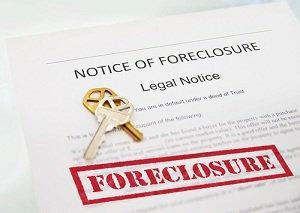Deficiency Judgments and Other Foreclosure Actions
 Millions of Americans have lost their homes to foreclosure since the 2008 subprime mortgage crisis. And for thousands of former homeowners–including in Illinois–the foreclosure nightmare is ongoing.
Millions of Americans have lost their homes to foreclosure since the 2008 subprime mortgage crisis. And for thousands of former homeowners–including in Illinois–the foreclosure nightmare is ongoing.
After a homeowner defaults on his mortgage payments, the lender files a foreclosure action. The house then becomes subject to a foreclosure sale, the proceeds of which go to the bank. However, a foreclosure sale will not necessarily generate enough proceeds to cover the bank’s expenses (i.e., what the homeowner owes to the bank). Such was the norm after the recent housing crisis.
Now, years later, some lenders are pursuing deficiency judgments to recoup borrowers’ old debts. Specifically, the “deficiency” is the difference between how much the property sold for at auction and the amount that was still due on the loan. Lenders can freeze the borrower’s bank account, garnish his wages and seize his assets in order to recover that difference, or at least a portion of it.
Foreclosure Defenses
There are numerous foreclosure defenses available under Illinois and federal law, which can also be invoked when a lender seeks a deficiency judgment. For example:
- Foreclosure actions must be filed within the chancery division of the county in which the property is located. The action cannot proceed if the lender has “unclean hands” by somehow contributing to the default.
- The Truth in Lending Act is a federal law that requires lenders to disclose certain information to borrowers regarding the terms of a loan. Borrowers may invoke TILA during a foreclosure action and prove that the lender failed to comply with the various disclosure requirements.
- The Real Estate Settlement Procedures Act is a federal law that provides borrowers with additional protections from unnecessarily high mortgage settlements and abusive lending practices. For example, RESPA requires lenders to make good-faith estimates of all the costs associated with a particular loan. RESPA violations provide borrowers with another foreclosure defense.
- A borrower may establish that the lender defrauded him. For example, if the appraisal was overinflated then the borrower can prove that he was induced to sign the loan documents by lender fraud.
- The Unfair Trade and Deceptive Practices Act is another federal law that protects against illegal lender practices. This law provides a foreclosure defense if the lender charges excessive fees or otherwise deceives the borrower.
- Traditional procedural deficiencies such as lack of standing or lack of jurisdiction can also doom a foreclosure action.
If you are a victim of the 2008 housing crisis and lost your home to foreclosure, you could face a deficiency judgment in Illinois court. If your lender initiates a foreclosure action against you, contact one of our Sugar Grove real estate attorneys at Law Office of James F. White, P.C. today. We have experience defending against unfair foreclosure actions, including deficiency judgments. Contact us today for a consultation.





